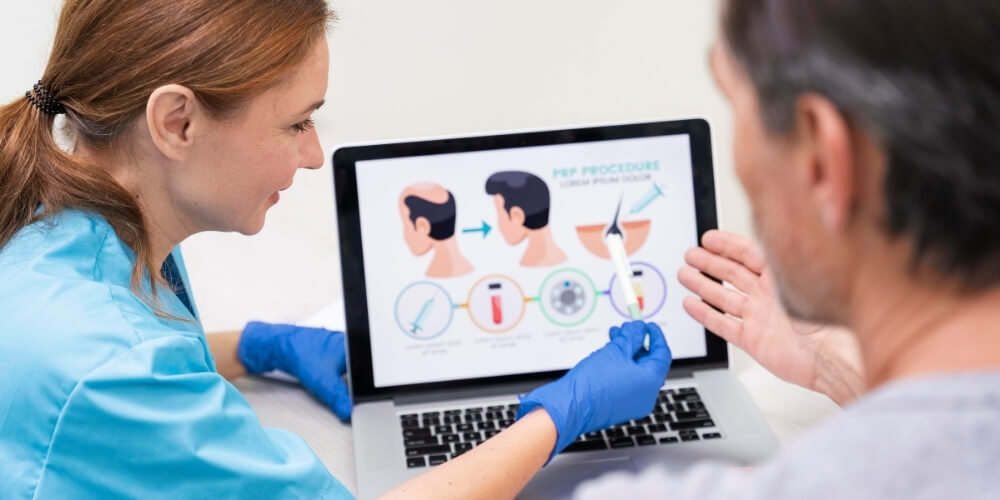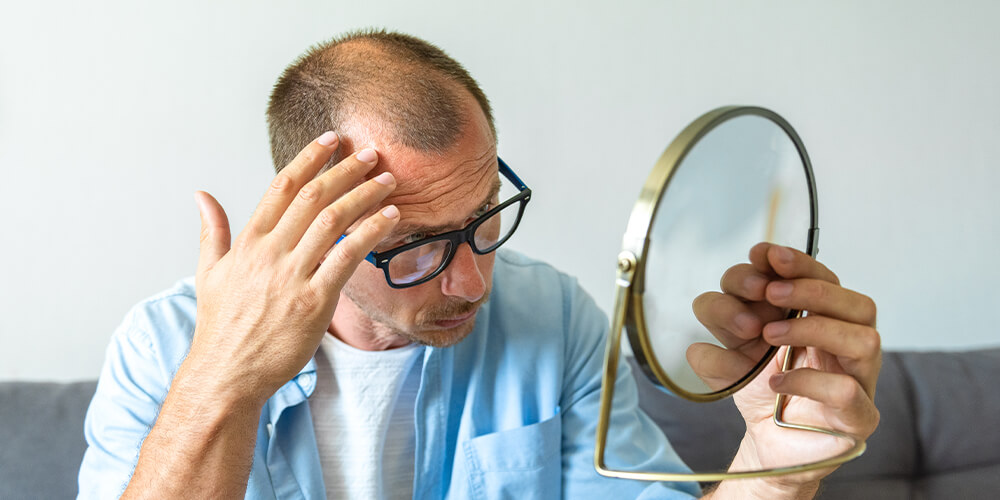After Hair Transplantation
Anasayfa » Itching After Hair Transplant: Causes, Solutions and Expert Advice

Common Side Effects After Hair Transplant
Hair transplantation, like any other surgical procedure, can cause some side effects. Side effects after hair transplantation include swelling, bruising, scabbing and itching. Side effects are temporary and resolve spontaneously within a few days. However, itching in particular can be uncomfortable for many people.
Causes of Itching After Hair Transplant
Itching after hair transplantation can have many different causes.
- Healing Process
After hair transplantation, the skin undergoes a healing process. While the tissue of the scalp is being reconstructed, mild irritation and dryness may occur on the skin. This condition causes itching.
- Crusting
Scabs may form on the scalp after hair transplantation. Scabs are wound scabs formed during the healing process. As the scabs dry, itching is experienced.
- Folliculitis
Some people may develop a condition called folliculitis after hair transplantation. It is an inflammation of the hair follicles. Folliculitis is characterized by itching, redness and the formation of small blisters.
How to Reduce Itching After Hair Transplant
You can try the following methods to reduce itching after hair transplantation:
- Keep the Hair Transplant Area Clean
It is important to keep the transplanted area clean after hair transplantation. You can wash and clean the operation area as recommended by the hair transplant specialist.
- Use Moisturizer
It is important to moisturize the hair transplant area to reduce itching. You can moisturize the area using a moisturizer recommended by the hair transplant specialist. This supports the healing process of the skin and reduces itching.
- Avoid Scratching
Itching can be hard to bear, but one effective way to reduce itching after a hair transplant is to avoid scratching. Scratching irritates the skin and increases the risk of infection. Keep your hand away from the hair transplant area and avoid scratching.
Expert Advice for Dealing with Itching After Hair Transplant
Experts make the following recommendations to deal with itching after hair transplantation:
- Apply Cold Compress
You can apply a cold compress to the hair transplant area to relieve itching. You can keep the ice pack on the hair transplant area for a few minutes. Cold compress can help reduce itching.
- Do Scalp Massage
Scalp massage can help reduce itching by increasing blood circulation. You can relieve itching by gently massaging the hair transplant area. However, be careful not to massage too hard and follow expert instructions.
- Use Itch Relief Lotions
You can use anti-itch lotions recommended by the hair transplant specialist to relieve itching. Lotions help to reduce itching and support the healing process of the skin.
Recovery Process After Hair Transplant
The healing process can vary from person to person. After hair transplantation, the scabs fall off within a few weeks and the hair follicles begin to settle for new hair growth. The full healing process may take several months. During this time, you should clean and care for the hair transplant area as recommended by the hair transplant specialist.
When to Seek Medical Help for Itching After Hair Transplant?
Itching after hair transplantation is generally considered a normal side effect. However, in some cases it can be a sign of a serious problem.
- The itching becomes very severe and unbearable.
- In addition to itching, redness, swelling or signs of infection appear.
- Itching causes pain that radiates from the hair transplant area.
- If itching occurs in combination with other symptoms that do not go away or worsen during the healing process.
Frequently ASked Questions
- Is itching normal after hair transplantation?
Yes, itching after hair transplantation is considered a normal side effect. However, if itching is very severe or unbearable and occurs in combination with other symptoms, you should contact your hair transplant specialist.
- How long does itching after hair transplantation last?
Itching after a hair transplant can usually last from a few days to a few weeks. Since each client’s healing process is different, the duration of itching may also vary from person to person.
- What should I do if the itching does not go away after hair transplantation?
Itching after hair transplantation is usually short-term and temporary. However, if the itching persists for a long time and becomes severe, it is important to contact your hair transplant specialist. The hair transplant specialist will evaluate the situation and recommend appropriate treatment methods.
For more information about hair transplantation or for a consultation about treatment options, contact one of our specialists.
- Share


